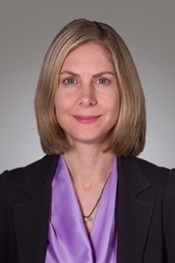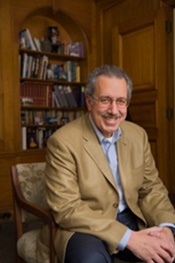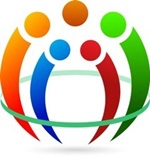2017 ACTO Conference: Creating the Outcome
Keynote Presentations
June 8th: Panel of Coaches; “Calling in Power & Culture in Coach Education: Challenging our Assumptions to Revolutionize the Profession”
Keynote Description:
What’s getting in the way of coach educators integrating culture in a way that factors in the dynamics of power, privilege and rank, individually, interpersonally and institutionally–and in our coaching profession as a whole? How do our blind spots as coach educators compromise the outcomes we want to create in our training rooms and coaching schools? How do we have real, risk-taking dialogue where we call each other in rather than calling each other out? Come hear how a group of coach educators has been naming and framing this debate in preparation for a two-day summit slated for Fall 2017 where we will:
- Question and challenge your own commonly held assumptions, beliefs and related biases that can create barriers to creating and sustaining climates of inclusion. (The “I”)
- Come together as a professional industry with the intention of co-creating an elevated global mindset. (The “WE”)
- Devise practical applications in improving coach training and education curriculum and embedding equity and diversity into our respective organization’s culture and reach. (The “IT”)
The presentation will be provocative, future-focused and action-oriented and focuses on moving the conversation into action in the areas of curriculum, school policies, field building, coaching competencies, and individual consciousness.
Participants will create awareness about their perceptions, roles and experiences and how they can be involved to affect change, and what the impact would be on their world.
Presenters’ Cultural Bios:
- “I was raised in a Jewish & Christian household – arguments were discussions – and how we learned.”
- “I was the first in the family to go to college and I have a Master’s degree.”
- “I am a white, Jewish Yankee with Russian, Polish and German ancestry.”
- “I have an invisible disability – I have MS.”
- “I am white, from a middle income family, and have always assumed unconsciously that my next job, meal and friend were available.”
- “I am from a working class family who worked in the mines.”
- “I am an empath, a baby boomer, a survivor and a city dwelling nature-love.”
- “I am married to a person of the same gender.”
- “I speak English, French, Turkish, German and Kiswahili (to varying degrees)”
- “I cannot disguise the colour of my skin.”
June 9th: Amee Olson; “An Insider’s Point of View: The Challenges and Sweet Delights of Organizational Coaching at Hershey’s”
Keynote Description:
Do the coaches you teach dream of working with large corporations? Or maybe they are internal coaches wondering how to get more buy-in from their leaders. Coaching leaders in organizations is one of the fastest growing sectors of coaching. ROI studies now prove the value a coaching culture has on improvements in productivity and results. Yet transforming a traditional corporate culture to embrace coaching is not easy. Amee Olson, the Director of Coaching and Executive Development at the Hershey Company, will share the journey of creating a coaching culture for this global organization. She has overseen the implementation of internal coaching at Hershey as well as worked with external coaches to improve the abilities of the leadership team. Marcia Reynolds, MCC, has worked with Amee in both capacities. She will interview Amee using questions provided by ACTO members prior to the conference, and there will be time to ask questions live as well. Come to this opening session to learn more about Amee’s experience at the Hershey Company: the benefits and organizational impact realized by coaching, the pitfalls and challenges that had to be addressed along the way, and nuances of what leaders in organization really want from coaching.
Presenter Bio:

Amee is the Director of Coaching and Executive Development at the Hershey Company. In her role, she oversees executive succession planning, executive development, and coaching, and is responsible for building the executive leadership bench.
Amee previously held talent management and leadership development roles at IBM. Prior to IBM, Amee lived in Europe as a senior consultant and executive coach with Wildenmann Consulting where she worked closely with clients from the technology, financial services and pharmaceutical industries.
Amee has experience leading teams to build leadership development curriculums that align with corporate strategy, to drive innovative talent and succession planning that builds executive bench, and to deliver organizational effectiveness initiatives that improve the bottom line.
Amee received her B.A. in Social Policy from Bucknell University and an M.B.A. from Yale School of Management. Amee lives in Hershey, PA with her husband, son and twin daughters.
June 10th: Dr. Richard Boyatzis;: “Effective Coaching for Sustained, Desired Change: Resonant Relationships, Emotional Intelligence, Compassion and Hope.”
Keynote Description:
Growing and developing is a major driving force in our quest to help others, make a difference and contribute to a better organization and society. Coaches, as a class of people who help others establish a deep emotional connection with others called resonance, whether teacher-student, professor-student, doctor-patient, nurse-patient, coach-coachee, mentor-protégé, manager-subordinate, and likely parent-child and spouse/partner to spouse/partner. They are literally, in tune with clients. Their own levels of emotional intelligence allow them to create and nurture these resonant relationships. They use their EI on the path through mindfulness, hope, compassion, and playfulness.
These experiences of mindfulness, hope, compassion, and playfulness are essential to renewal of the human organism at the neurological, hormonal, emotional, and behavioral levels. Based on decades of research into emotional intelligence competencies and longitudinal studies in their development, Professor Richard Boyatzis will lead the audience through examples of how coaching with compassion (i.e., coaching a person to the PEA, their vision and values) is key to leadership development and more resonant relationships. He will describe recent fMRI studies on coaching to the Positive Emotional Attractor (PEA) versus the Negative Emotional Attractor (NEA), as well as recent doctor-patient studies showing that arousal of the PEA increased treatment adherence for Type II Diabetics. He will explain why it is central to neuro-endocrine renewal in the human body (which is the only antidote to the ravages of chronic stress). .
This session will address the following:
- A process for developing sustainable improvement on EI, resonant relationships and the central role of compassion in it.
- Understanding the psycho-physiological role of the Positive Emotional Attractor and the Negative Emotional Attractor in motivating change or encouraging the status quo regression.
- Perceiving how coaching with compassion is effective in helping people change in sustainable ways, but coaching for compliance is not. And why it is crucial to the sustainability of the leader (i.e., the coach) as well.
- Understanding the neural activations involved in these two forms of coaching and why one prepares a person to consider change and learning and the other closes their minds.
- How to coach others to develop EI, resonant leadership, and to sustainably change.
Presenter Bio:

His ongoing research supporting his Intentional Change Theory includes developing new and better measures of emotional, social and cognitive intelligence and how these abilities impact performance. His latest research includes fMRI studies to establish the neuro-endocrine arousal of coaching and the impact on how comfortable people are to express their feelings and ideas, and their willingness to change.
His intention is not only to share his latest work in interesting, and often funny, ways, but to lead the participants in various exercises to experience how his theories play out in our work.
TITLE: Coaching for Inspiration, Motivation and Engagement

